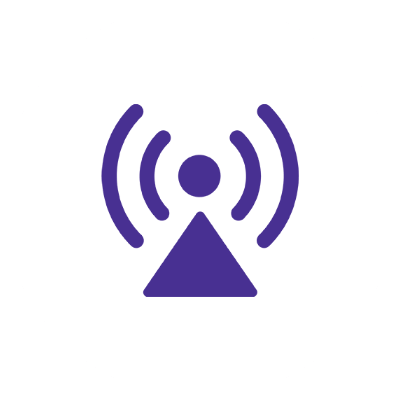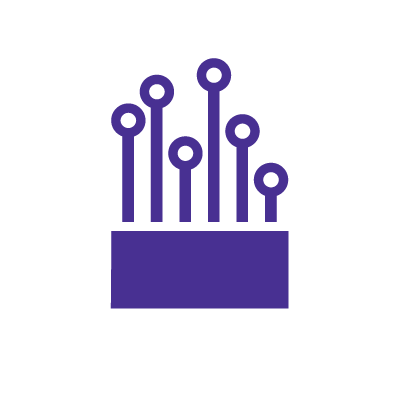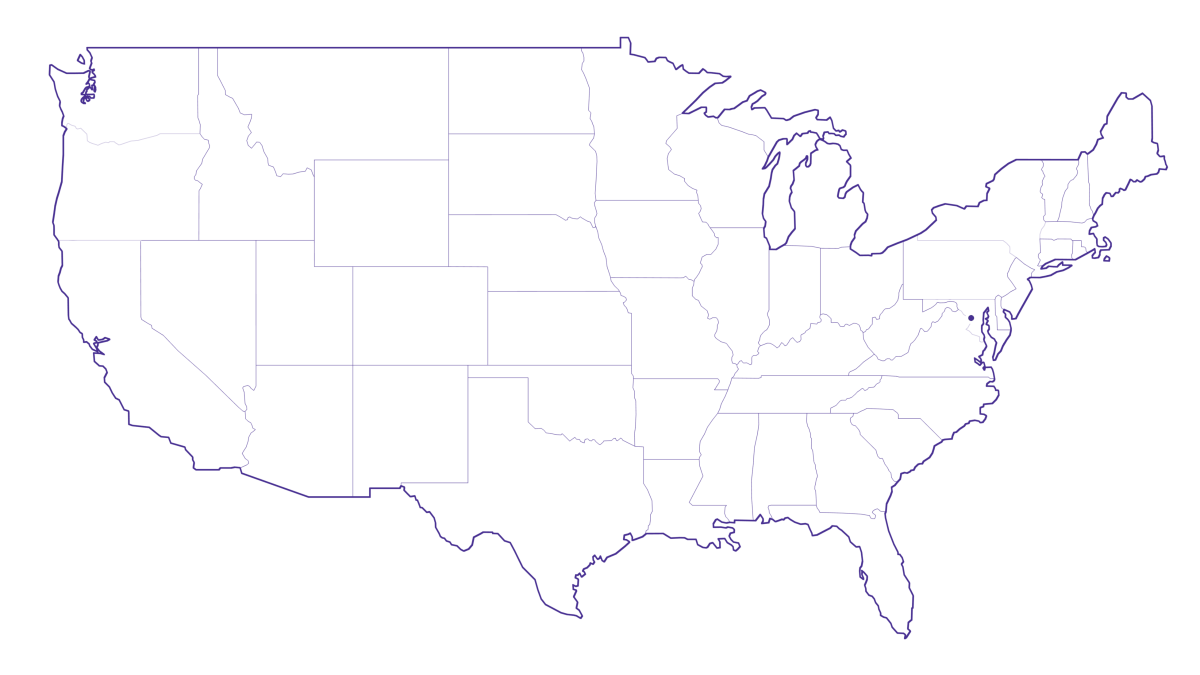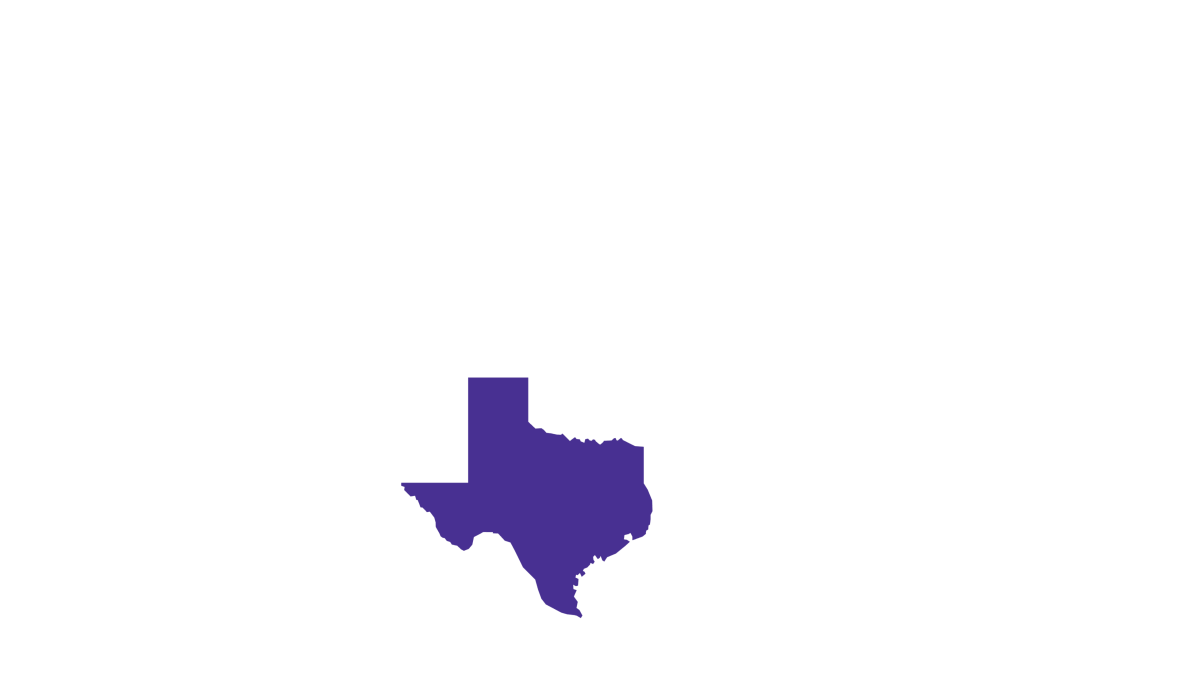What is fixed wireless access?

Fixed wireless access (FWA), also known as 5G home internet, is internet that is broadcast from cell towers through airwaves to receivers within a customer’s home. For an optimal fixed wireless internet connection, receivers need to be within at least 10 miles of the nearest broadcast tower.
In this article, we’ll explain what fixed wireless access is, how it compares to a wired internet connection and why it might not be the best solution for home internet.
The FWA technology gap
You deserve better internet
Fixed Wireless Access (FWA) uses radio waves which are impacted by obstacles like buildings and trees, resulting in reduced reliability.

How does fixed wireless internet work?
Fixed wireless internet uses 4G and 5G wireless frequencies to provide internet connectivity between two different locations. These locations are generally between a mobile network tower and a FWA-enabled wireless network within a user’s home.
The wireless signals are sent from the towers to the receiver within the customer’s home. From there, a user may insert an ethernet cable into their receiver and connect it to their dedicated device or a WiFi router.
Fixed wireless access vs WiFi
WiFi is a networking protocol that allows WiFi-enabled devices on a WiFi network to transfer data using radio waves.
While WiFi 7 is the latest release of the publicly-available WiFi standard, most devices still use the previous standard, WiFi 6, which allows consumers to use the 2.4 GHz and 5 GHz bands.
With wired connections, WiFi routers receive internet signals from an internet service provider (ISP), delivered through cable or fiber infrastructure. At home, cables fit into the WiFi router’s ports and the router distributes the signal.
Some cable or fiber customers may choose to install mesh WiFi networks within their home, to make the most out of their WiFi signal.
After the WiFi router is wired to the cable or fiber network, your WiFi router’s antennas distribute the wired cable or fiber internet signals, spreading it throughout your home and providing wireless connectivity to devices such as mobile phones, IoT devices and laptops.
A fixed wireless access network customer needs to have a receiver that can accept incoming cell tower signals and turn them into transmissible data for devices. In some cases, these fixed wireless access receivers may need their own WiFi router in order to distribute the signal throughout the home.
WiFi is simply a networking protocol, and a means by which data is transferred – whether fiber or fixed wireless access.
Pros and cons of fixed wireless access
Before investing in a fixed wireless broadband set up, you should consider the pros and cons of fixed wireless access.
Pros of fixed wireless access
Let’s briefly look into the pros of fixed wireless access.
- Fewer wires: A fixed wireless access set up can mean fewer wires, as the connection generally requires just a power cable and an ethernet cable to connect the receiver to the WiFi router if desired.
- Quicker than satellite or DSL: Satellite connections typically top out at about 12 Mbps download. DSL tops out at 100 Mbps download. Fixed wireless access, for example, may be able to reach 300 Mbps, but these speeds are not guaranteed.
- Remote access: Users in rural areas near FWA structures may be able to access fixed wireless access internet when other options such as DSL, cable or satellite aren’t available.
Cons of fixed wireless access
It’s important to consider the cons of fixed wireless access as well.
- Performance issues: Simple objects like trees or walls can block your fixed wireless access signal. Being outside of the tower’s range can also affect signal quality.
- Slower than fiber: Some fixed wireless access providers offer speeds of 300 Mbps, but fiber-powered connections can reach as high as 1 Gig , and even 5 Gig, in select locations.
- Random speed allocation: Fixed wireless access providers can only deliver a range of speeds, not a guaranteed speed. Unlike fiber-powered connections, you may be paying for a slower speed than you expected to receive.
- Fewer providers: Unlike cable or fiber internet, fixed wireless access is a relatively new technology with only a handful of providers.
- Can be more expensive: Fixed wireless access receivers can be expensive to purchase, and the true value of the infrastructure depends on whether or not you think a range of speeds is more useful than a guaranteed speed.
If you currently have fixed wireless internet and are experiencing slowdowns, check out our article on why your 5G home internet connection is so slow.
Fiber-powered internet
Why Fiber Internet works better
Astound’s fiber-powered internet provides consistent speeds throughout the day versus 5G Home Internet which is prone to intermittency.

Is fixed wireless access reliable?
Day-to-day, fixed wireless access can be reliable in the sense that you will have access to the internet. There are, however, many factors that may affect the integrity of a fixed wireless access connection.
Network congestion: With fixed wireless networks, your connection is in the hands of users in your area accessing the internet. If many users are streaming, gaming or using large amounts of bandwidth, you may experience a drop in speed, as seen on Reddit.
Jitter: Jitter is a time-delay on your network connection, usually caused by internet congestion and is more present in fixed wireless access connections than fiber or cable. For gamers or streamers, this can mean a poor viewing or gaming experience.
Downtime: During peak hours, a fixed wireless network customer may experience one or all of the following:
- Slowed speeds.
- Prioritization of mobile data over fixed wireless access points.
- Disturbances of radio frequency.
These are all common actions FWA providers may take in order to keep their network online.
If you are considering the switch from fiber to fixed wireless access, understand your internet needs and build the optimal plan for your household.
Is fixed wireless access fast?
Depending on the fixed wireless internet provider, the time of day and whether or not the network is congested, some fixed wireless broadband networks, such as T-Mobile and Verizon, offer download speeds of 10 to 50 Mbps.
However, the experience of fixed wireless internet for consumers can be different than advertised and is subject to location and availability.
Learn more: How fast is 5G home internet?
Gaming internet
Get the total gaming solution
How you game is up to you. One thing is clear–you need fast and ultra-reliable internet. Get fiber‑powered internet that delivers Gig speeds no matter what high-bandwidth activity you choose.

Is fixed wireless access good for gaming?
Fixed wireless access providers can typically offer speeds of 40 Mbps to 300 Mbps. Some games may be able to run on fixed wireless access; however, a good gaming experience is contingent on low latency and consistent speeds.
Unfortunately, fixed wireless access’ limitations deliver fluctuations in latency, inconsistent speeds at peak times and low data caps, which could negatively impact your game when it matters most.
Here are a few points to consider when considering gaming with a FWA connection:
1. Is my equipment up-to-date?
Without the right equipment, you won’t be able to access the speeds provided by FWA broadband. Make sure you have the latest hardware to access fixed wireless internet.
2. Is latency an issue?
If you occasionally play games online and your gaming performance doesn’t depend on interruptions, fixed wireless access may be good for you. However, if every millisecond counts while you’re gaming online, you might want to consider a wired alternative, like cable or fiber-powered.
3. Are lower speeds an issue?
Many FWA providers offer only a range of speeds that they provide to their customers, from 40 to 300 Mbps. While using the internet with a FWA provider, your network speed may fluctuate between those two values.
Most online MMO or MMORPG games recommend a dedicated, guaranteed minimum of 100 Mbps to prevent network issues.
4. Is congestion an issue?
If there are many connected users to the same fixed wireless access point, your network may mandate bandwidth slowdowns, as some Reddit users experienced, to redistribute the FWA internet to other customers. During these moments, you’ll experience increased lag, latency, ping and jitter.
Build your plan
Your perfect plan is just a click away
Get the speeds, WiFi, mobile and TV plans you need all at an affordable price. Bundle your services with Astound and see how much you can save.

Get a better experience with Astound
With Astound’s high speed internet you can get maximum download speeds of 300 Mbps* for $20 per month. You also have the option of maximum download speeds up to 2 Gig in select areas, which is more than 14x faster than most fixed wireless access providers.
Depending on your family’s needs, Astound’s more consistent connection will better suit your activities, no matter if you’re working or learning online, gaming or streaming.
If you’re looking for the fastest internet speed, look for the highest number.
Remember: sometimes 1000 Mbps and above may be referred to as 1 Gig, 1.5 Gig, 2 Gig or 5 Gig internet. Whatever speed you choose, make sure it aligns with your household’s internet habits.
Fixed wireless access may look like a cable-free, cheaper alternative to fiber-powered networks, but its performance leaves much to be desired. It’s susceptible to interference from trees, weather, congestion and walls. And, it’s not ideal for heavy gamers or streamers.
A wired internet connection and fixed wireless access internet can both deliver speed.
A wired connection, however, delivers a more consistent connection as long as you have up-to-date equipment, including your modem and router, capable of receiving the highest speeds.
Astound’s fiber-powered internet delivers faster, more reliable speeds to handle the increasing demands of a connected home with ultra-fast speed, reliability and performance. Astound offers more of the speed you need to power all your devices – with awesome Gig pricing and speeds up to 5 Gbps in select locations. Visit www.astound.com/internet and be astounded with faster internet and better mobile.
*Internet speeds may vary & are not guaranteed. Certain equipment may be required to reach advertised speeds. DOCSIS 3.1 modem with 2.5GE physical LAN port is required for 1 Gigabit speeds and higher. See astound.com/yourspeed for why speeds may vary. To view Astound’s FCC Network Management Disclosure see astound.com/policies-disclaimers. Limited time offer, subject to change without notice. Advertised promotional price valid for duration of the stated promotional period from time of service activation. Regular rates apply after promotional period ends. Equipment not included and is extra. Modem required for Internet service. Enhanced Wi-Fi or Whole Home Wi-Fi (eero) not included and is add’l. Offer includes a monthly discount for enrollment in both automatic payments (autopay) & paperless billing (e-bill). Discount of $10 applies with automated bank account deduction or a discount of $5 applies with automated credit/debit card payment. Valid email address required. Must complete enrollment in autopay and e-bill within 30-days of placing the order. Without enrollment, the discount does not apply. Discount appears on bill within 3 bill cycles after enrolling. If either autopay or e-bill is canceled, services are changed, or the account is not in good standing, then the monthly discount will be discontinued. Offer valid only for new residential Astound customers or previous customers with an account in good standing who have not had Astound service within the last 60 days. Any add’l services, equipment, premium channels & other tiers of service are subject to an add’l charge & regular increases. A one-time activation fee of $14.99 (in addition to any installation fees) will be charged & is subject to change. Add’l fees apply for taxes & surcharges, and are subject to change. WA RESIDENTS: unless otherwise specified, price does not include a 2% Regulatory Administration Fee. For details about taxes, fees & surcharges visit astound.com/fees. No early termination fees apply in the event service is terminated in advance of the promotional end date. Customer is responsible for any accrued service charges in the event service is canceled. Subject to credit check. Not all services & speeds are available in all areas. A multi-product discount may be available to qualifying addresses with a subscription to mobile, TV, and 600 Mbps Internet or higher. Discounts will be reflected in your order cart at time of purchase, if available. Other restrictions may apply. All services are governed by the Astound Customer Terms & Conditions that can be found at astound.com/policies-disclaimers. © 2025 Radiate HoldCo, LLC d/b/a Astound Broadband. All rights reserved.
While we have made every attempt to ensure that the information contained in this site has been obtained from reliable sources, Astound is not responsible for any errors or omissions, or for the results obtained from the use of this information. All information in this site is provided “as is”, with no guarantee of completeness, accuracy, timeliness and without warranty of any kind, express or implied, including, but not limited to warranties of performance, merchantability and fitness for a particular purpose. Certain links in this site connect to other websites maintained by third parties over whom Astound has no control. Astound makes no representations as to the accuracy or any other aspect of information contained in other websites.
eero Plus is available for an additional $9.99/month and requires subscription to whole home WiFi powered by eero.

















